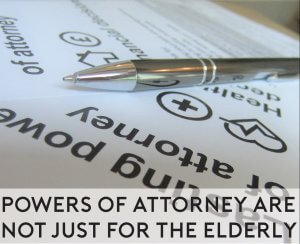 What is a Lasting Power of Attorney (LPA?)
What is a Lasting Power of Attorney (LPA?)
A Lasting Power of Attorney is a legal document enabling you to nominate who you want to make decisions about your finances or health and welfare, in the event you are no longer able to do so. You appoint them as your Attorney.
Aren’t LPAs just for the elderly?
Age-related issues such as dementia are often the reason that people are no longer able to make such decisions. In those circumstances, the answer is Yes. However, an event at any stage of adult life, such as an accident or illness could have the same effect.
What if I don’t have an LPA and the worst happens?
Without a LPA (or a valid Enduring Power of Attorney, the precursor to LPAs), your family may have to apply to the Court of Protection for authority to act on your behalf. You become a court-appointed Deputy, making decisions about finances or health and welfare. The problem is the process for being appointed a Deputy can be drawn out, and costs can be high. Most importantly, the choice of who to appoint to act in your best interests rests with the Court, not with you. Remember this is happening at the same time that your family is coming to terms with your ill health.
I’ve heard there are different types of LPA, is that right?
Yes, there are two types of LPA:
A Property and Financial Affairs LPA covers decisions your Attorney may need to make concerning your financial affairs. This includes selling your home and investing the proceeds, in the event you cannot live at home anymore and need residential care. It also includes day-to-day finances and managing your bank account.
A Health and Welfare LPA, your Attorney will have authority to make personal welfare decisions on your behalf if you lack capacity to make such decisions, although you can add specific restrictions and indicate preferences for your Attorney to consider.
I’m thinking I’d like to know more about LPAs, what next?
A qualified legal specialist will be able to help you decide if a LPA is right for you. A lawyer can structure and draft your LPAs, and manage the process of registering the LPAs with the Office of the Public Guardian. We do this work regularly and assure clients that the LPA will work as intended if it needs to be implemented. If you would like to find out more about a LPA for you, or a family member, feel free to talk to us. With offices in Basingstoke, Fleet, Hartley Wintney, Hook and Odiham, Bates Solicitors – incorporating Wallis Prance – are your Solicitors in North Hampshire. Just call 01252 629292.

Leave a Reply
You must be logged in to post a comment.